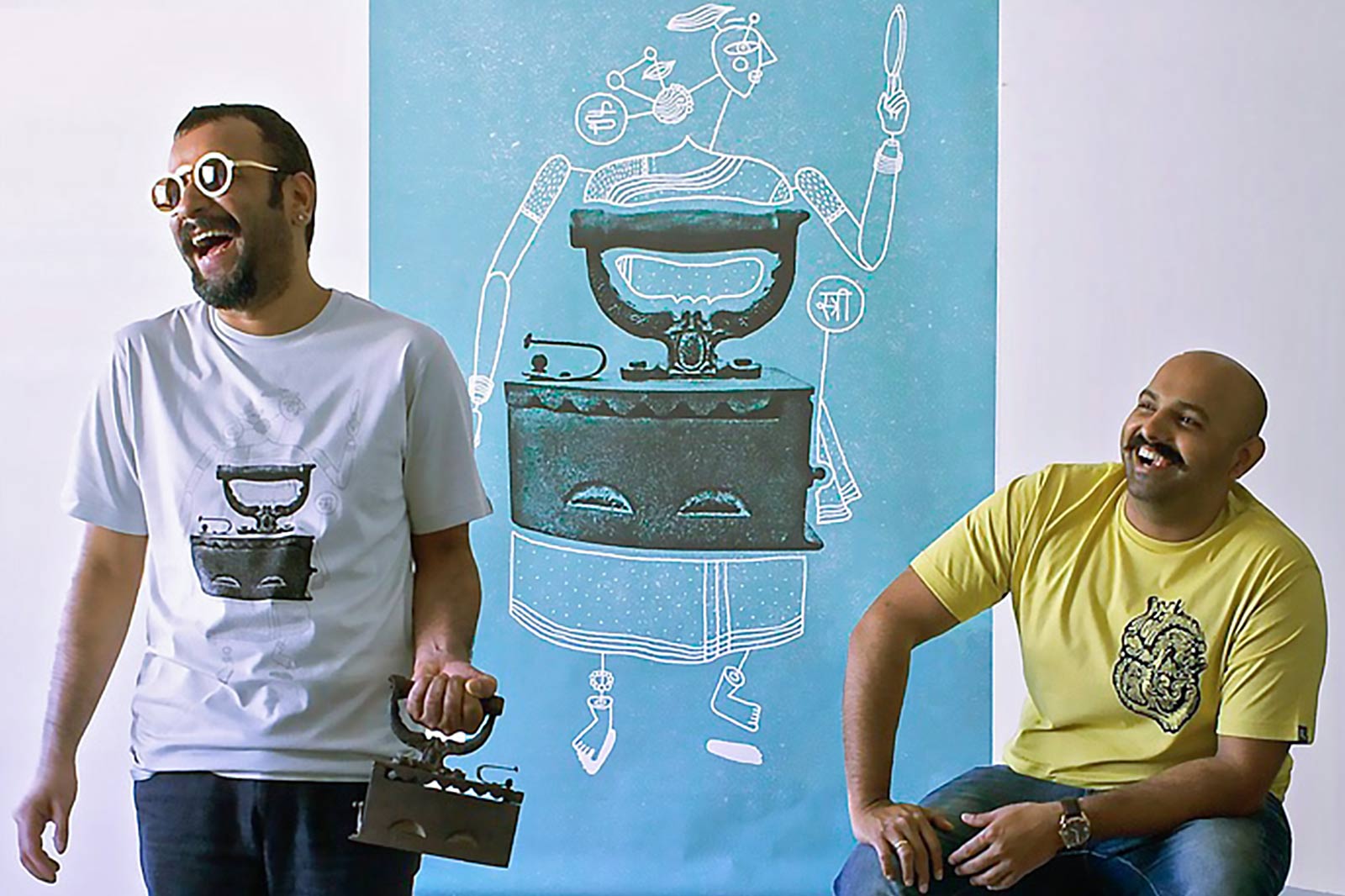Your Cart is Empty

Our design Katalyst, the inimitable Shahid Datawala has worn many hats, and played many roles; and each role is defined by a design-driven aesthetic that embodies Datawala’s signature mix of quirky yet ethereal. He is also a connoisseur of signifiers or bygone eras, his home a tribute to everything he has painstakingly collected so far. We combined Shahid’s interest in giving things an exciting after-life with Kulture Shop designer & illustrator extraordinaire Lokesh Karekar’s impeccable linework and they came up with the tongue-in-cheek Estree.

Datawala over the years
Shahid grew up in Kolkata & Delhi, spending his childhood chasing cars, even trucks on his roller skates around his neighbourhood, among other crazy things. “It was a fun part of my life, and I think I still have that child-like character about myself. I don’t think that’s changed.” While he is mostly self-taught, he credits Delhi for helping him realise his design sensibility. Once while in Delhi’s Connaught Place, he stumbled upon the People Tree Studio, and eventually joined them, helping concoct projects and execute them. Somewhere along the way, he also learned to play the Jews Harp (or the Morchhang, as it’s known in North India), and has accompanied musicians including Indian Ocean.

In a shirt he designed (photo by Vikas Munipalle for Sunday Mid-Day)
Joining People Tree in the early '90s was Shahid’s entry into the design world. There, he worked in textiles and took inspiration from the various craft forms that existed in the country, such as tie-and-dye and puppetry. He eventually moved out of People Tree to try his hand at set design, architectural design and mostly, “reinvent himself as a designer”. Shahid also headed Pallate Design Studio (Mumbai) for seven years, winning the 2010 Elle Decor International Design Awards (EDIDA) Designer of the Year honour during that period. Over the last 15 years his photography has been widely exhibited and appreciated internationally. In India, he works with Tasveer Arts and Matthieu Foss Gallery, and his series Shadowboxing and Dress Circle have been widely appreciated. He calls his life “schizophrenic” as he straddles multiple worlds: award winning furniture designer, photographer of crumbling urbanity, maker of high end jewellery and collector of markers of disappearing moments.

Jewellery from Datawala's Great Bombay Sewage System (left) and Table Wear (right) collections
“I’ve always been collecting things. As a child, I used to collect matchboxes, strange and interesting stones, anything that caught my eye,” Shahid tells us. “Then one day I sold it all off to buy roller skates.” He used his enthusiasm for matchbox covers at a later date, publishing a compilation of their covers, titled ‘Matchbook’ (Tara Books). Priorities of childhood aside, however, Shahid’s reputation as an obsessive (and immensely possessive) collector precedes him.

Selected covers from Matchbook
“Later, I discovered the ‘art of collecting’. But I don’t collect for the market value of these things, but they actually have a large amount of aesthetics that I actually relate to. But a lot of things I collect, I actually try give them a second life – I actually place them in my house on pedestals, make them more than they were earlier”. It is this collection Shahid and Lokesh went through to find a connection – razors, typewriters, projectors, handcuffs, vintage lamps, scissor and all kinds of other obscure things Shahid collects. Eventually, they settled on the coal iron – the iconic Estree. Lokesh chose line drawing as a style to work around Shahid’s photograph of a coal iron from his collection. “So the result makes it look almost like the heart of the character (that Lokesh has drawn around it). It’s also got a funny angle. It’s also at the same time a strong statement about the mechanical iron and the robotic woman.”

⸻
Have a question? Hit us up at info@kultureshop.in